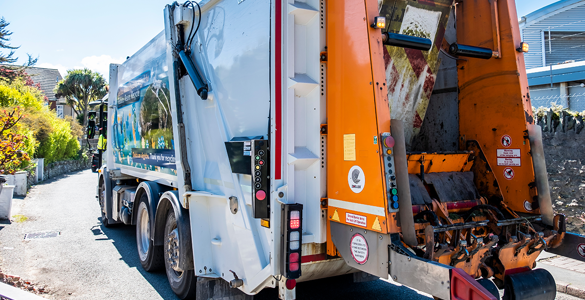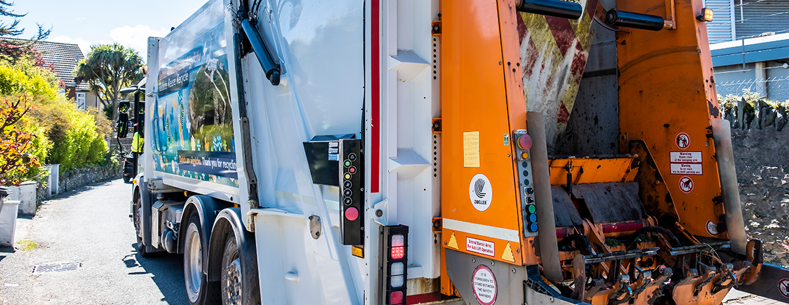This article was last updated on 07 May 2020.
Local government, as a result of the coronavirus outbreak, has had to respond to an increased demand for many of its services, at a time when it has reduced workforce capacity. In a written statement on 25 March 2020, the Minister for Housing and Local Government noted the preparatory work being undertaken by local authorities:
Councils across Wales are putting in place contingency arrangements to ensure that services on which we all rely will continue to meet essential needs. Services changes will take place as the demand for services grows in the face of a reduced capacity to supply as the employees become isolated. Local authorities will need to make difficult decisions on what matters most.
The statement also noted that in order to protect vulnerable residents, local authorities are working closely with the third sector to ‘ensure that critical services to the most vulnerable can be delivered and new demands can be met’.
The WCVA (Wales Council for Voluntary Action) in its guidance pages notes that people who are unable to get support or assistance from friends and family during the pandemic should contact their local council.
Local services
Local authorities have already made significant changes to many of the services provided to residents by reducing or suspending many non-essential services.
The aim of the service changes is to reduce the spread of the virus, and to manage workforce pressures as staff self-isolate. Changes include closing facilities such as libraries, recycling centres and cemeteries, changing waste collection services, and suspending some registrar services. While many of the service changes will be similar across Wales, some, such as waste collection services will vary between council areas.
Household waste and recycling
The collection of household waste is an essential and visible service provided by councils. Changes to waste collection will have an immediate and noticeable impact on resident’s lives. On 14 April 2020, the Welsh Government published non-statutory guidance on the prioritisation of waste and recycling collection services. The guidance notes that:
As a key service, the collection of waste and recycling should be maintained as far as possible in order to prevent any build-up of waste that could be harmful to local amenity and public health.
Food waste, clinical / nappy waste and black bin waste is given the highest priority to avoid significant risks associated with the build-up of such waste on public health. The guidance also notes that assisted collections for vulnerable people should also be maintained.
Councils are continuously reviewing their services, with some councils now re-introducing some waste collection services that were temporarily suspended.
Funerals
The Welsh Government published its guidance on funerals on 3 April 2020. The guidance explains the legal requirements on crematoria, cemeteries and places of worship on maintaining social distancing rules. This includes limiting the number of attendees to a funeral, although it does not prescribe a specific number. The guidance states that:
In so far as a crematorium or place of worship is concerned, the appropriate limit will depend on the size and layout of the building. The legal requirement is that all reasonable measures are taken to ensure a distance of 2 metres is kept between those attending.
Most local authorities with crematoria and cemeteries within their area have imposed restrictions on the number of people attending funerals. Limits on attendance varies across Wales, with some councils limiting attendance to 5 members of the immediate family, while others provide greater flexibility.
The key legal requirement is that all reasonable measures are taken to ensure a distance of 2 metres is kept between those attending. This only relates to people from different households, and therefore the guidance states there is a degree of flexibility in managing numbers at a funeral since the assumption is that a ‘significant proportion of those attending will be sitting together with members of their household (which could enable more people to attend).’
The Regulations do not require the closure of cemeteries in Wales. Nevertheless, a number of burial authorities (most local authorities and some community councils) did close their cemeteries as a response to the pandemic. Most burial authorities have since re-opened their cemeteries or are expected to re-open soon following Welsh Government advice.
A quick guide for members of the public on the impact of coronavirus restrictions on funerals is provided in the Annex to the guidance (page 6).
Postponement of elections in Wales
The Coronavirus Act 2020 gives the Welsh Ministers powers to postpone local government by-elections in Wales. This power is limited to the period that falls between the passing of the Act and 5 May 2021.
On 29 April 2020, the Welsh Government laid before the Assembly the Local Government (Coronavirus) (Postponement of Elections) (Wales) Regulations 2020. The Regulations will come into force on 5 May 2020, and enables Returning Officers to postpone a by-election for a principal council or community council vacancy until a date between 1 February 2021 and 16 April 2021.
The local government elections for the whole of Wales are not due to be held until May 2022.
The 2020 Act also postponed the Police and Crime Commissioner elections for England and Wales due to be held in May 2020. The elections will now take place in May 2021.
Local authority meetings
Section 78 of the Coronavirus Act 2020 introduced broad powers for the Welsh Ministers to make regulations in relation to council meetings in Wales. The Welsh Ministers can now specify such things as the time and frequency of local authority meetings, how or where they are to be held, and access to the public.
The Local Authorities (Coronavirus) (Meetings) (Wales) Regulations 2020 (PDF 125KB) were laid before the National Assembly on 21 April 2020, and came to force on 22 April 2020. The Regulations enable local authority meetings to function differently during the pandemic. These changes include allowing members of local authorities to meet remotely (i.e. via video conferencing), changes to arrangements for holding meetings (e.g. time, date and frequency of meetings), and modifying public access requirements (e.g. publication of notices and documents). The Regulations are only in force for local authority meetings held before May 2021.
The Regulations apply to principal councils and their executives, community councils, National Parks Authorities, Swansea Bay Port Health Authority and Fire and Rescue Authorities in Wales.
The WLGA (Welsh Local Government Association) has also recently published guidance for councils on holding meetings remotely (PDF 177KB).
Fire and Rescue Authorities
The three Fire and Rescue Authorities in Wales have suspended ‘non-essential awareness and engagement work’. This has been done to manage and protect key front-line services, particularly as staff may need to self-isolate or recover from illness.
The Minister for Housing and Local Government noted in her statement on 25 March that she is confident that the three fire and rescue services have the necessary ‘resources and plans in place to respond in the usual ways’.
In Plenary on 29 April 2020, the Minister reported that the Fire and Rescue Service had only experienced a 4 percent absence rate during the coronavirus pandemic. This, the Minister noted, had enabled the Fire and Rescue Service to provide full emergency cover, as well as additional support provided to the Ambulance Service and other agencies during this time. The Minister did express concern over a recent spate of grass fires, which increases pressure on the fire services during the pandemic.
The Minister also noted that the grass fires also increase the health risks to those living in the area, particularly those with Covid-19 symptoms.
Further information
Residents can see the latest information on service changes that affect them on their council’s dedicated coronavirus webpages. Senedd Research regularly updates its blog post - Coronavirus: help and information for people in Wales, providing direct links to each local authority’s specific coronavirus webpage.
Local authorities deliver a wide range of services and financial support not mentioned in this post. Senedd Research has published articles in relation to the coronavirus outbreak and services which local authorities have some or full responsibility in delivering. These include housing, transport, social care and schools. They will also be responsible for administering certain financial assistance and schemes, including some welfare benefits and business support grants.
Article by Osian Bowyer, Senedd Research, National Assembly for Wales
We’ve published a range of material on the coronavirus pandemic, including a post setting out the help and guidance available for people in Wales and a timeline of Welsh and UK governments’ response.
You can see all our coronavirus-related publications by clicking here. All are updated regularly.






